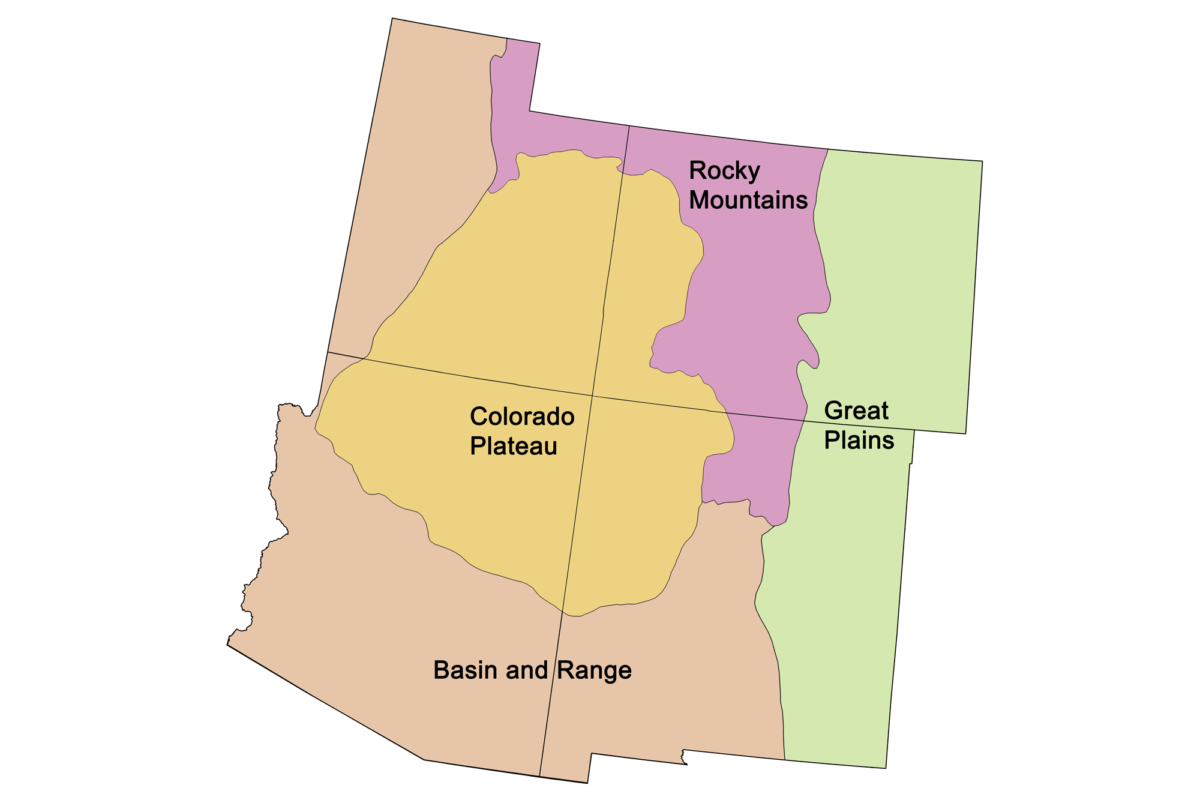Arizona
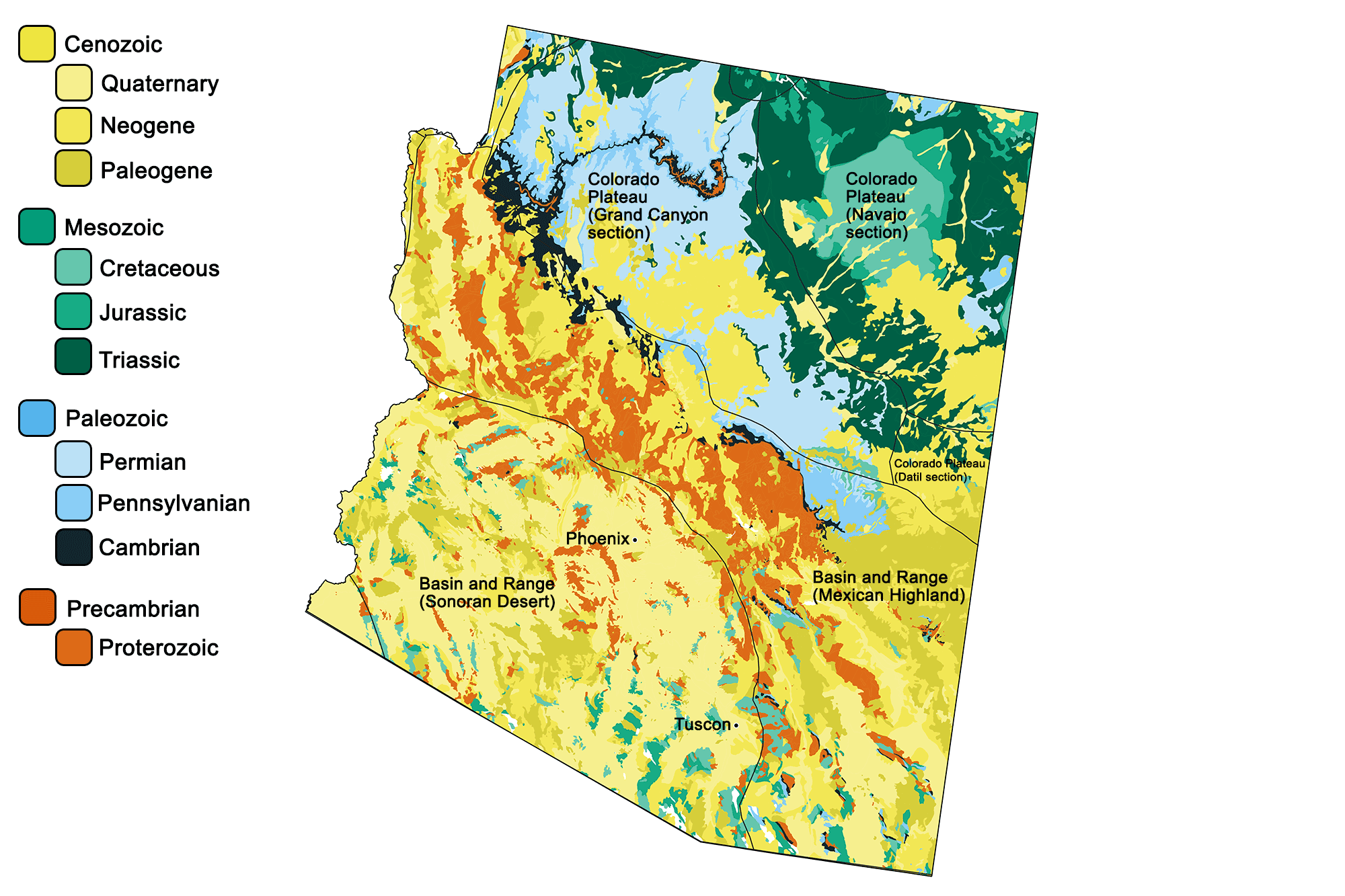
Geologic map of Arizona with physiographic regions identified.
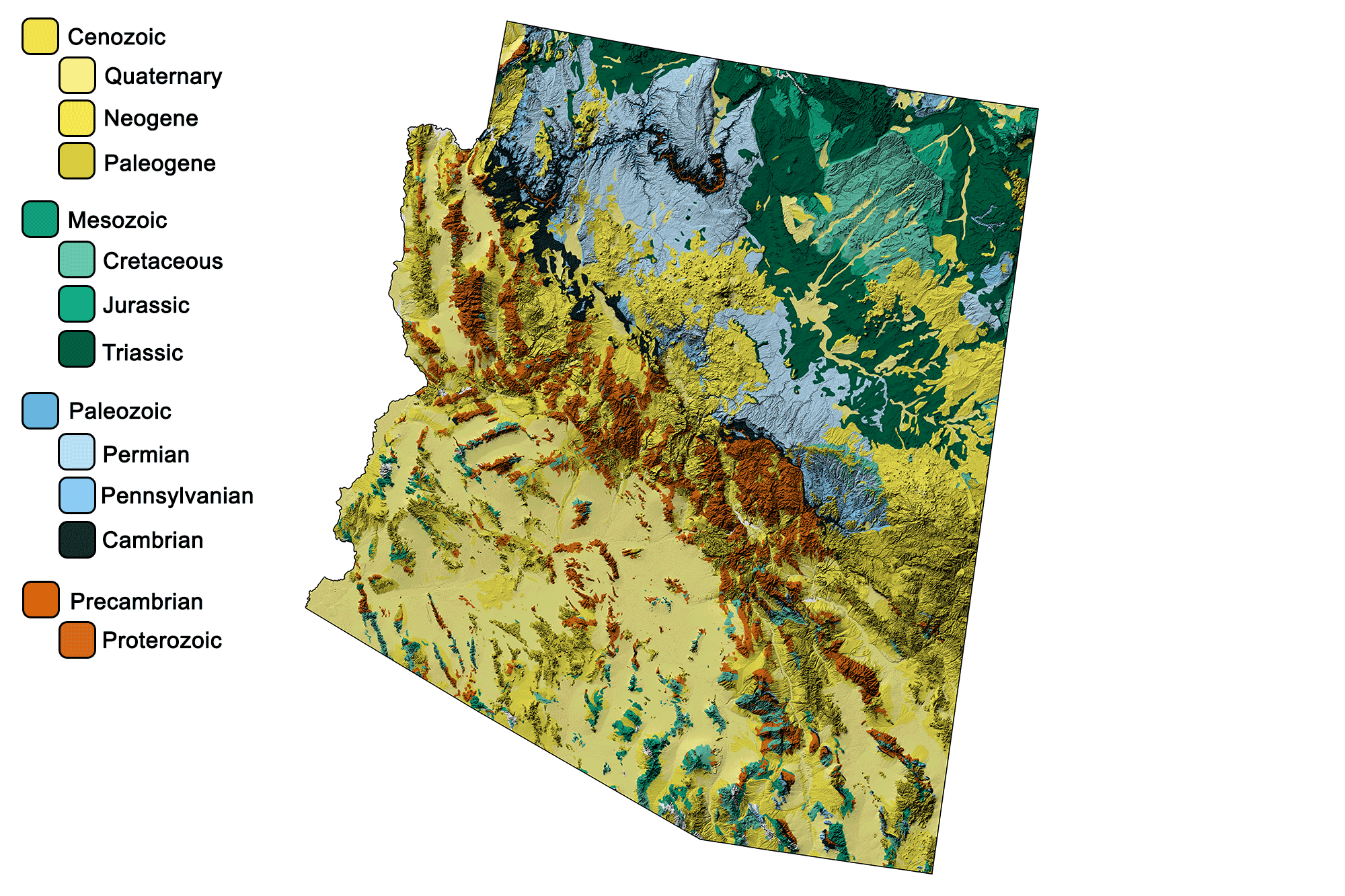
Geologic and topographic map of Arizona. Geologic data from Horton et al. (2017) using the maximum age values for each mapped unit. Topographic data are derived from the Shuttle Radar Topography Mission (SRTM GL3) Global 90m (SRTM_GL3) (Farr, T. G., and M. Kobrick, 2000, Shuttle Radar Topography Mission produces a wealth of data. Eos Trans. AGU, 81:583-583).
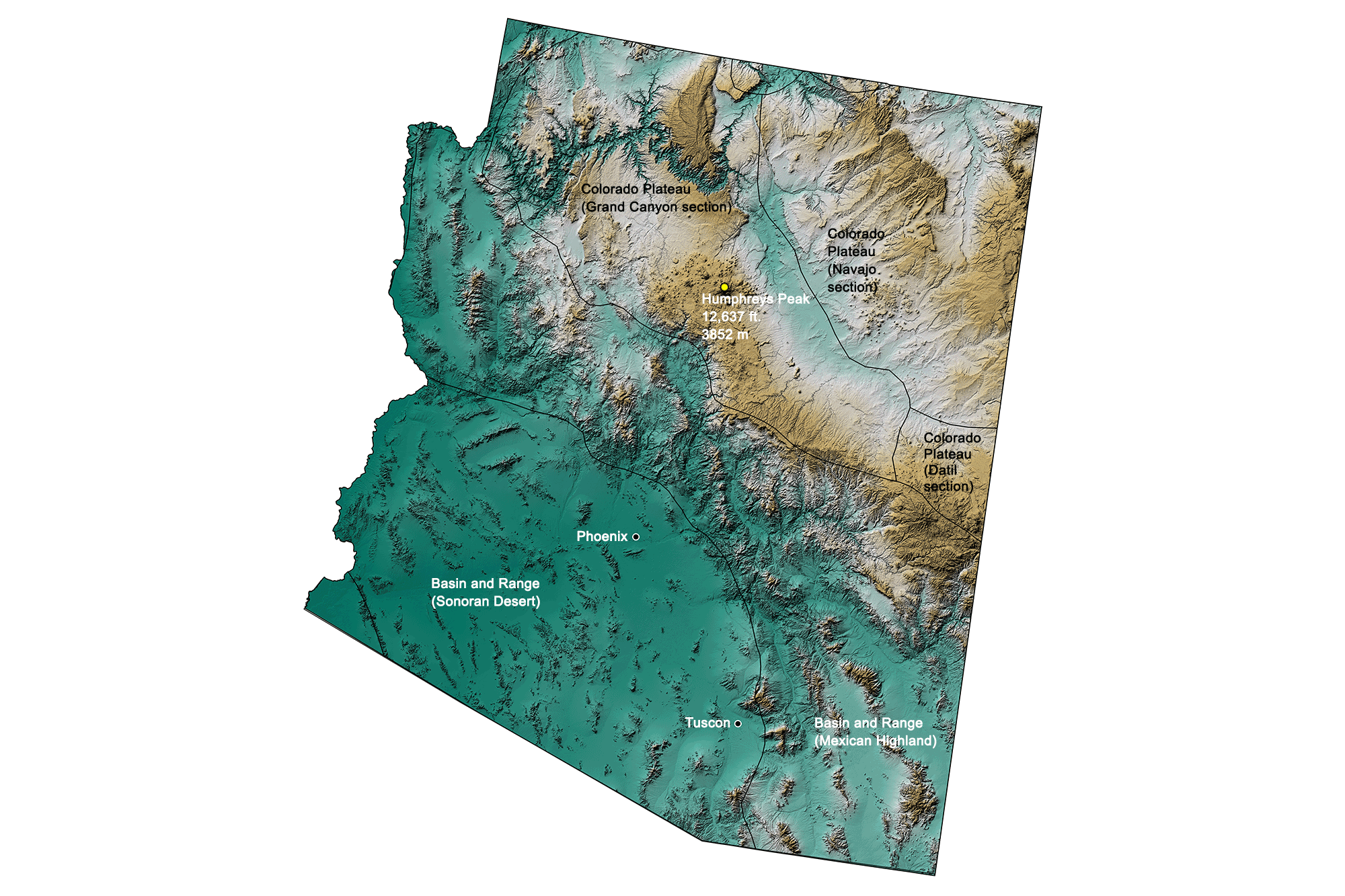
Topographic map of Arizona with physiographic regions and point of highest elevation identified.
Colorado
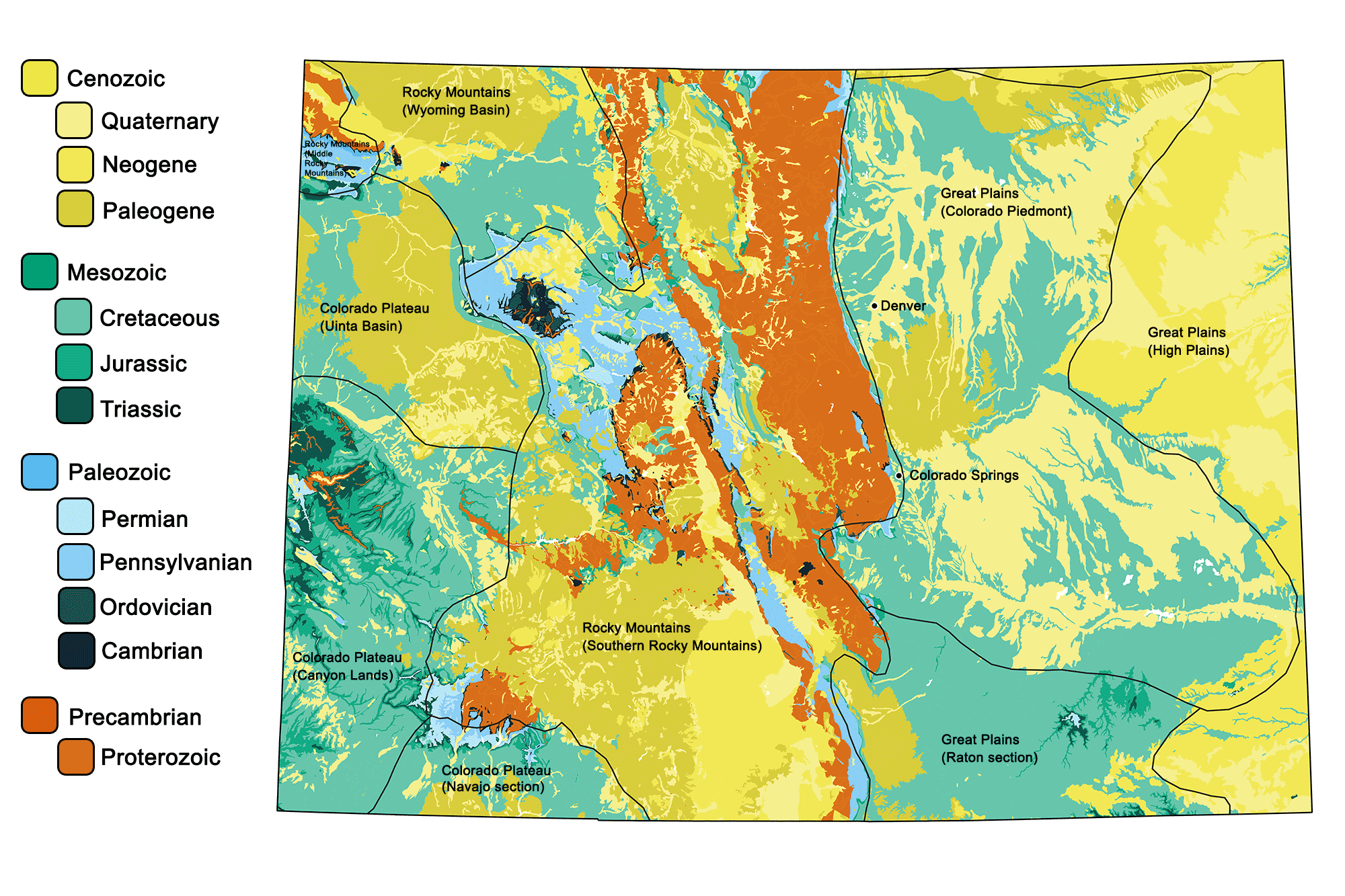
Geologic map of Colorado with physiographic regions identified.
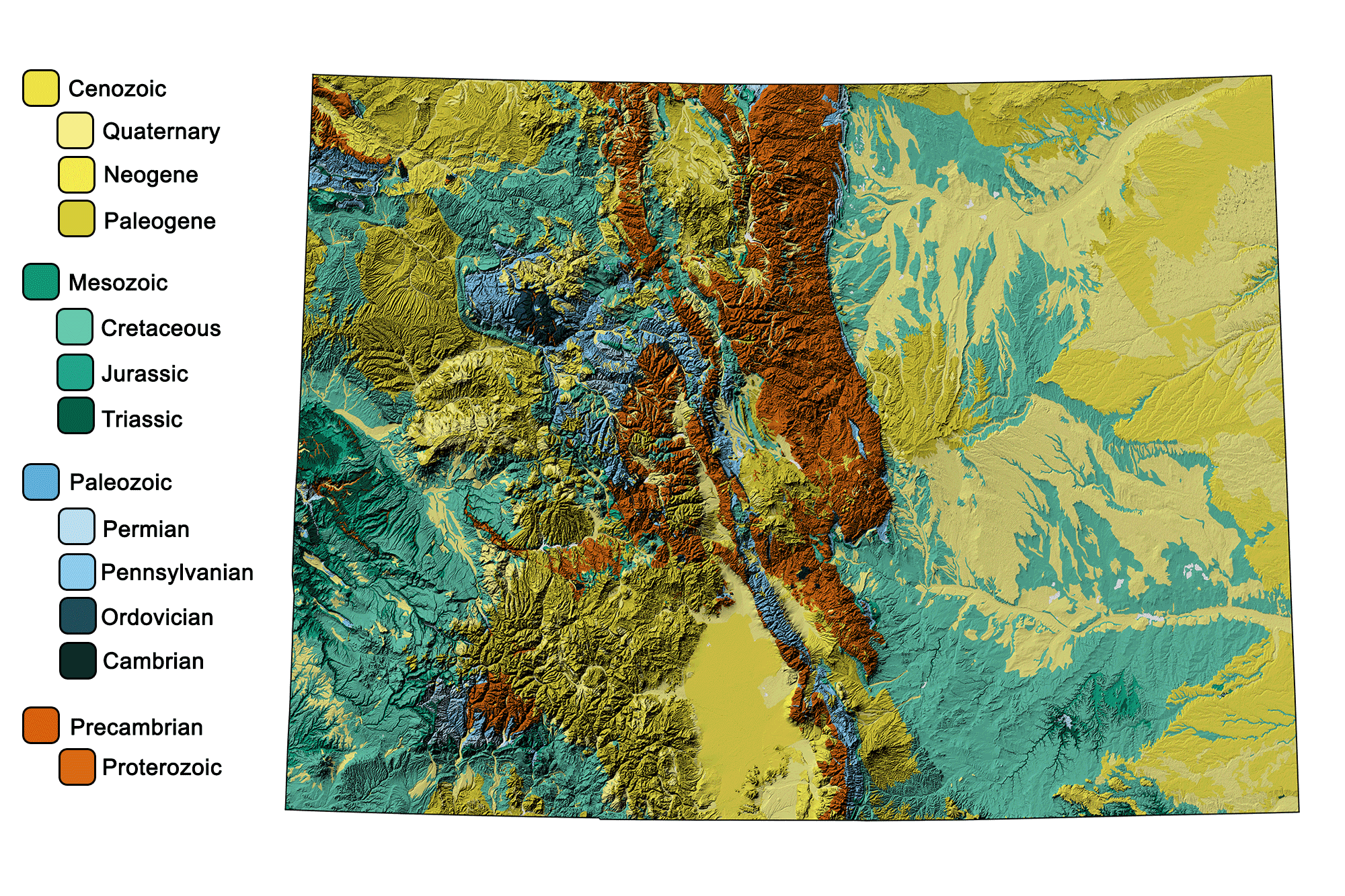
Geologic and topographic map of Colorado. Geologic data from Horton et al. (2017) using the maximum age values for each mapped unit. Topographic data are derived from the Shuttle Radar Topography Mission (SRTM GL3) Global 90m (SRTM_GL3) (Farr, T. G., and M. Kobrick, 2000, Shuttle Radar Topography Mission produces a wealth of data. Eos Trans. AGU, 81:583-583).
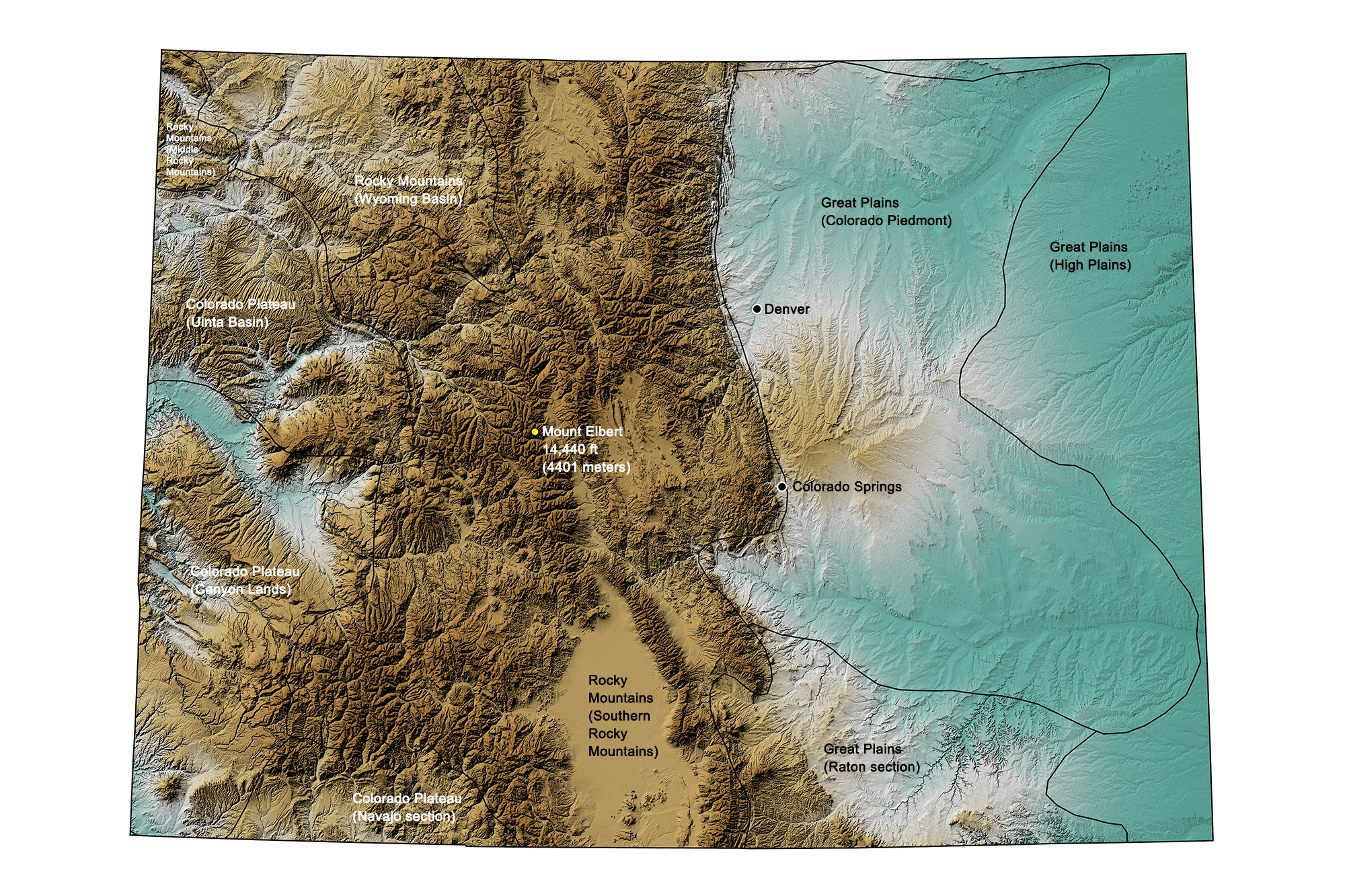
Topographic map of Colorado with physiographic regions and point of highest elevation identified.
New Mexico
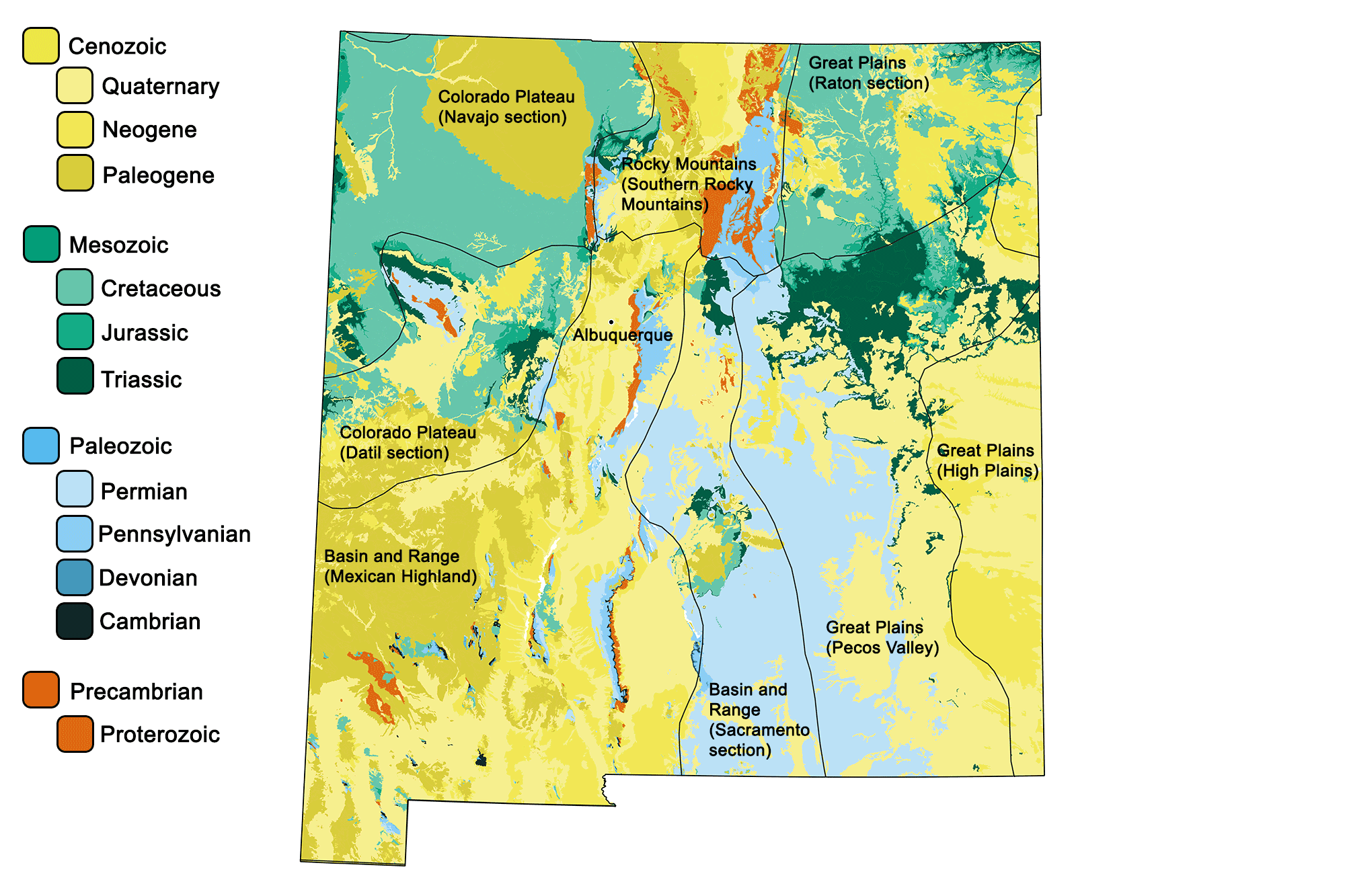
Geologic map of New Mexico with physiographic regions identified.
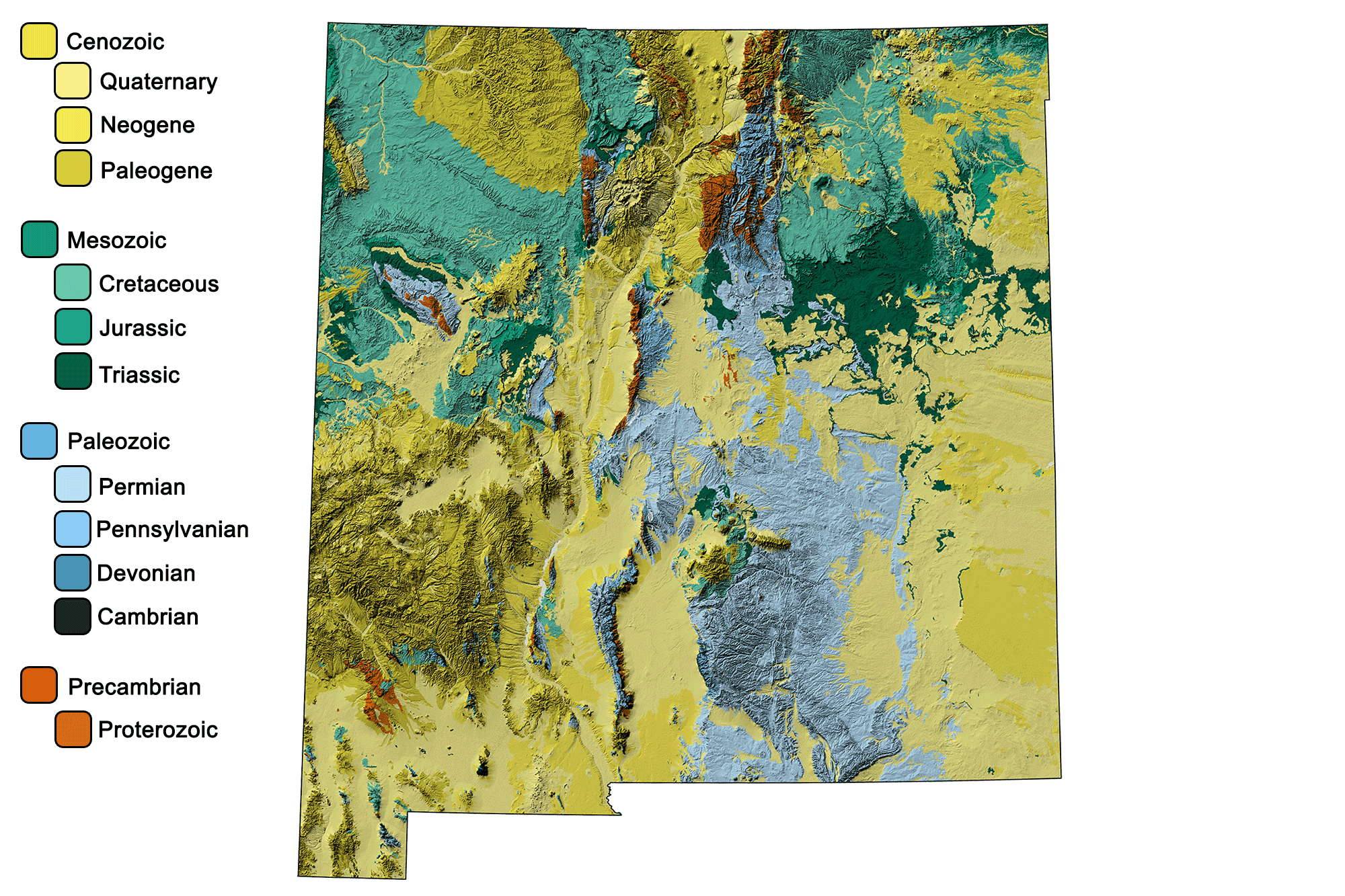
Geologic and topographic map of New Mexico. Geologic data from Horton et al. (2017) using the maximum age values for each mapped unit. Topographic data are derived from the Shuttle Radar Topography Mission (SRTM GL3) Global 90m (SRTM_GL3) (Farr, T. G., and M. Kobrick, 2000, Shuttle Radar Topography Mission produces a wealth of data. Eos Trans. AGU, 81:583-583).
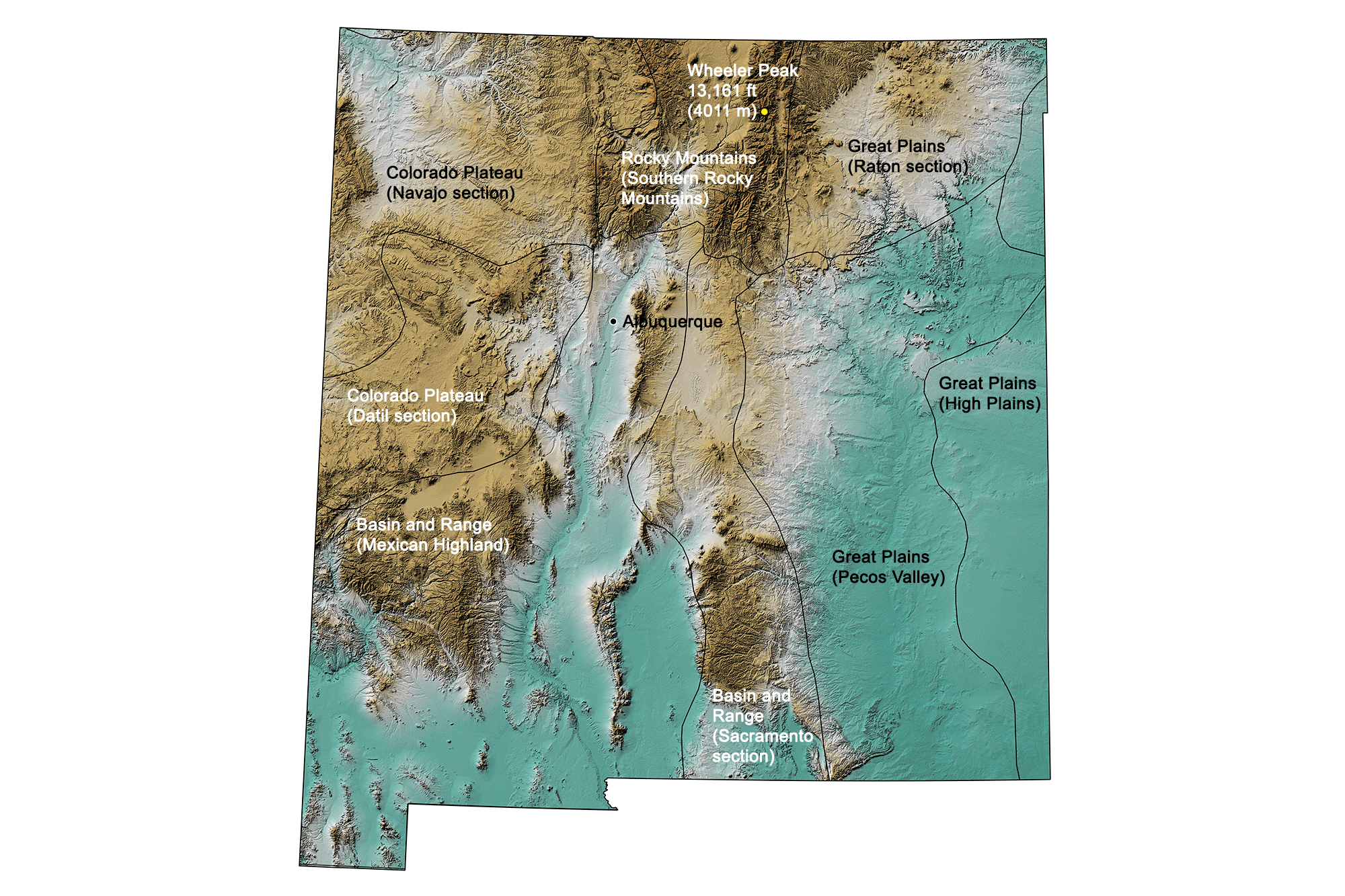
Topographic map of New Mexico with physiographic regions and point of highest elevation identified.
Utah
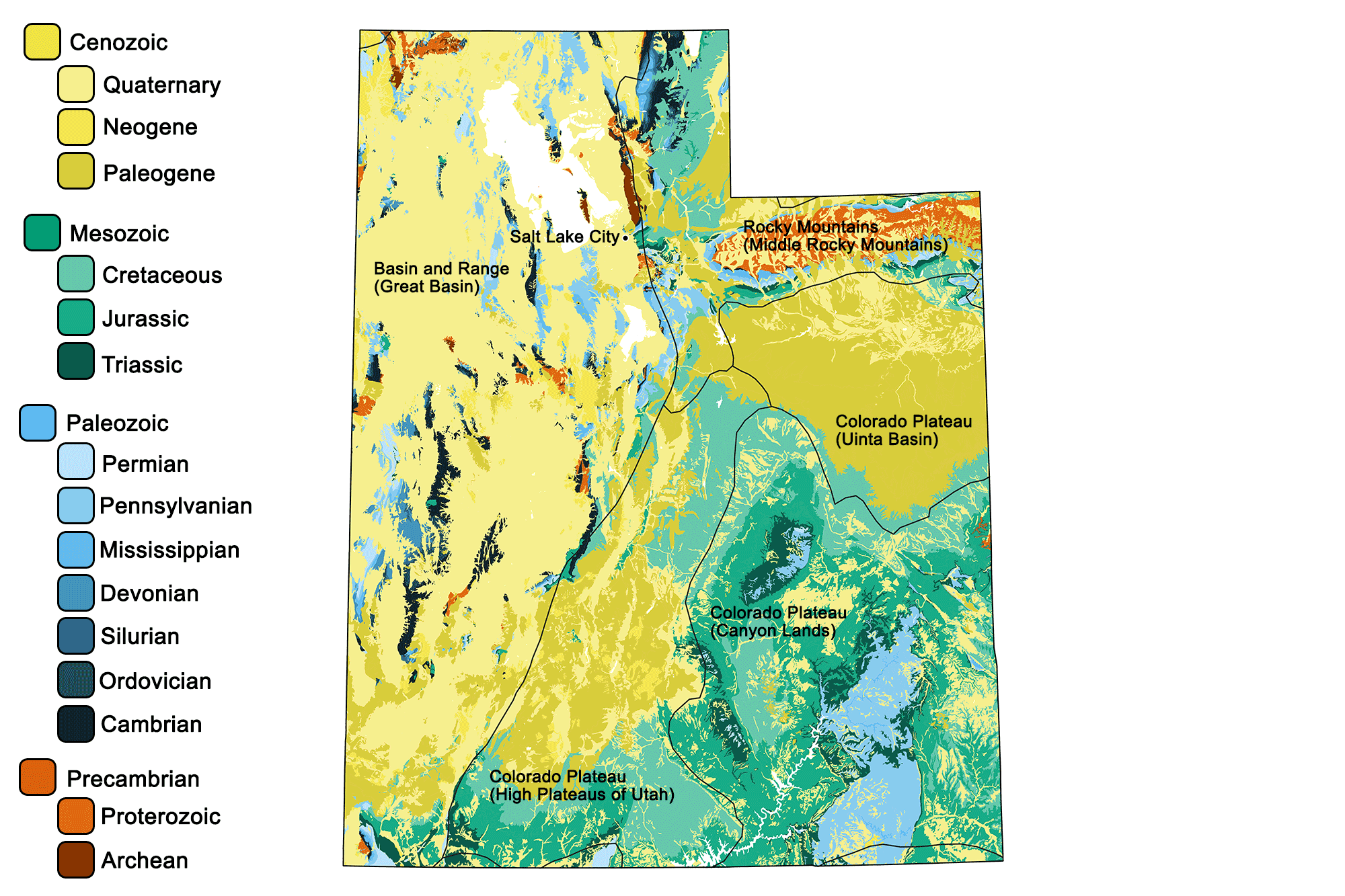
Geologic map of Utah with physiographic regions identified.
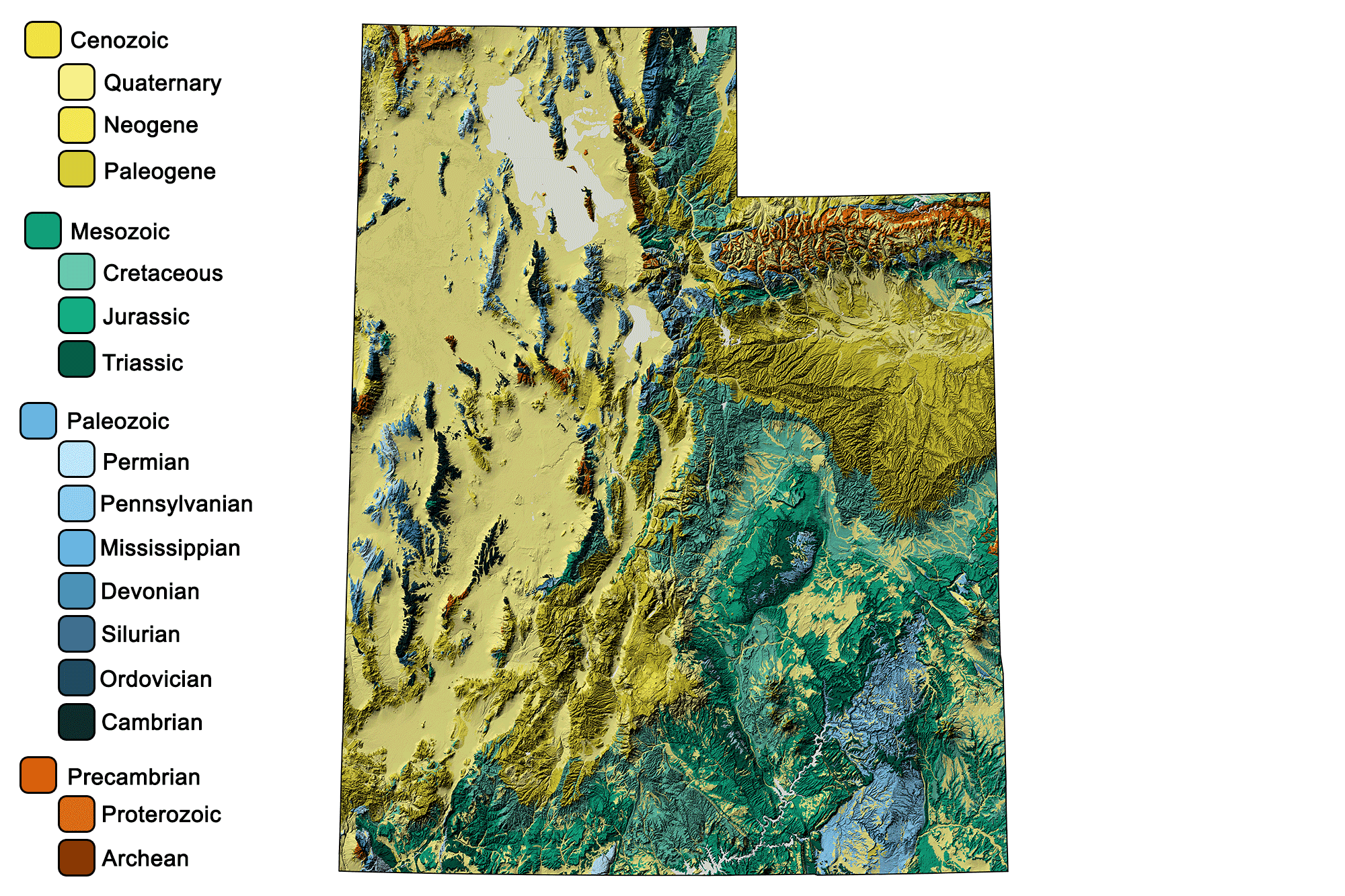
Geologic and topographic map of Utah. Geologic data from Horton et al. (2017) using the maximum age values for each mapped unit. Topographic data are derived from the Shuttle Radar Topography Mission (SRTM GL3) Global 90m (SRTM_GL3) (Farr, T. G., and M. Kobrick, 2000, Shuttle Radar Topography Mission produces a wealth of data. Eos Trans. AGU, 81:583-583).
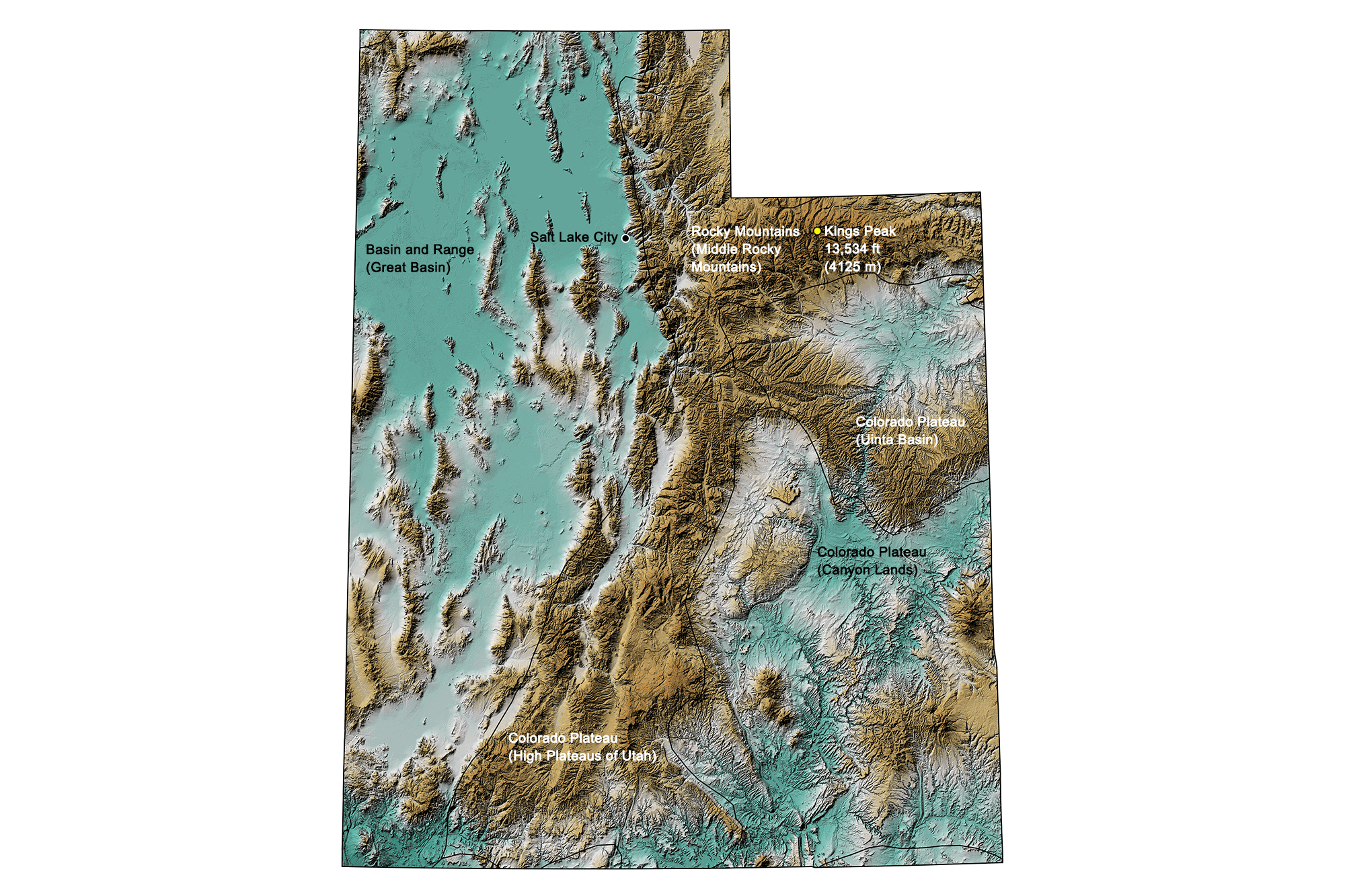
Topographic map of Utah with physiographic regions and point of highest elevation identified.
Credits and permissions:
The maps on this page were created by Jonathan R. Hendricks for the Earth@Home project. Unless otherwise indicated, geologic maps were created using QGIS and USGS data from Fenneman and Johnson (1946) and Horton et al. (2017) using the maximum age values for each mapped unit. Unless otherwise indicated, the topographic data are derived from the Shuttle Radar Topography Mission (SRTM GL3) Global 90m (SRTM_GL3) (Farr, T. G., and M. Kobrick, 2000, Shuttle Radar Topography Mission produces a wealth of data. Eos Trans. AGU, 81:583-583); greens indicate lower elevation, browns higher elevation; points of highest elevation are marked, as are major cities and physiographic regions. All maps above have a Creative Commons Attribution-NonCommercial-ShareAlike 4.0 International license. You are welcome to use them for any educational purpose.
This page was last updated on August 18, 2023.



